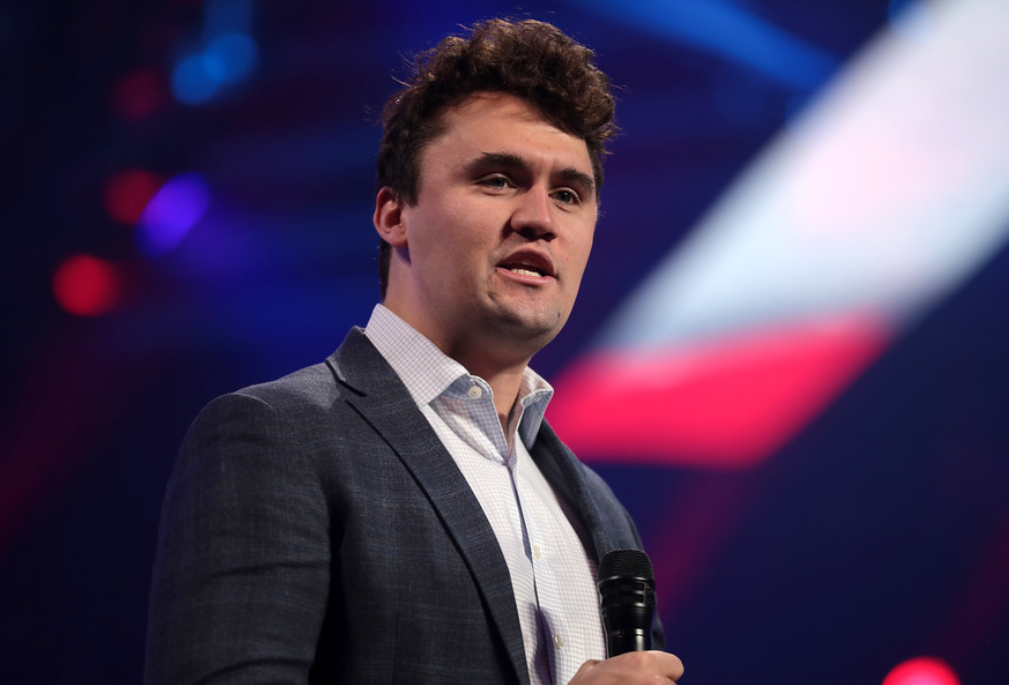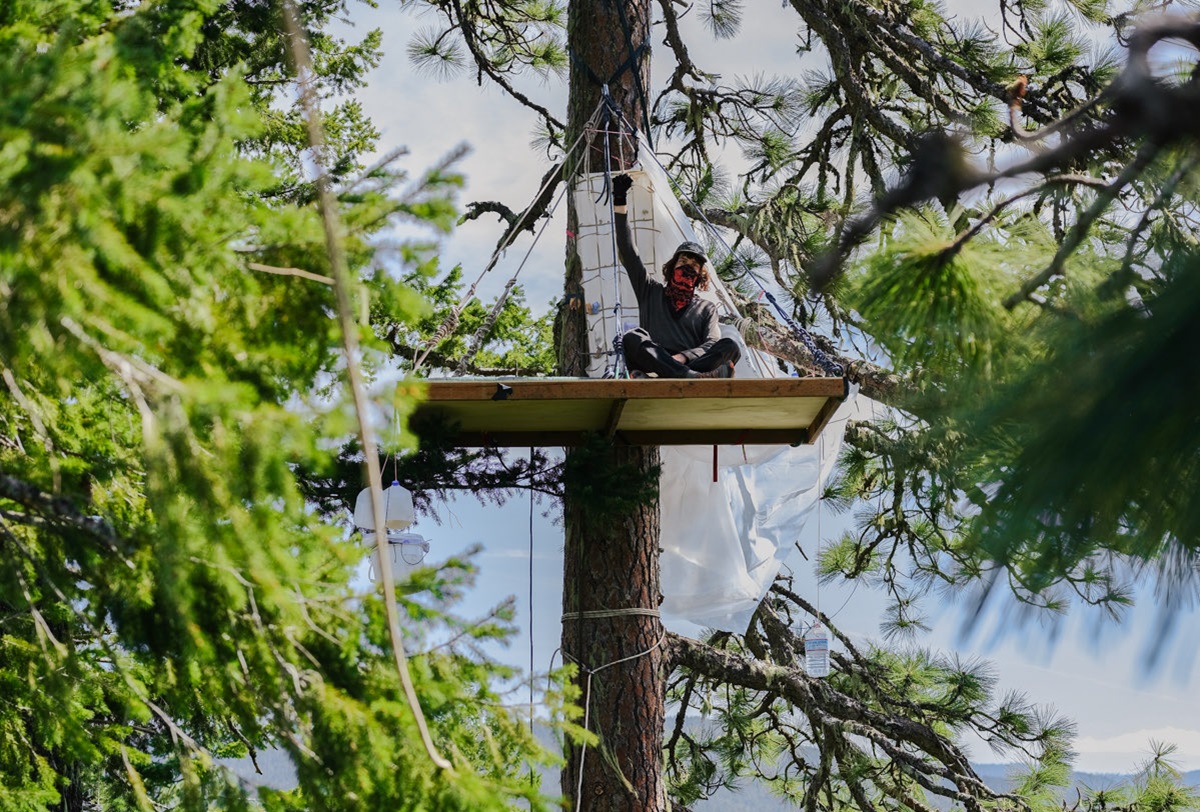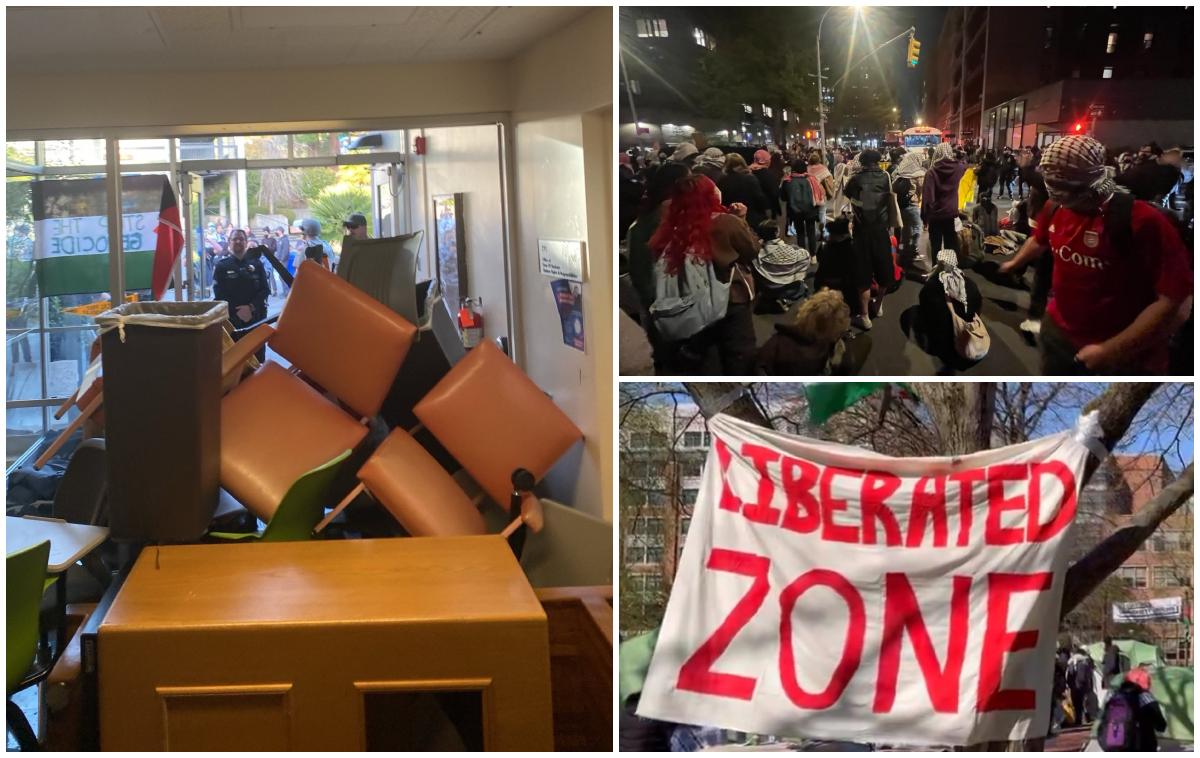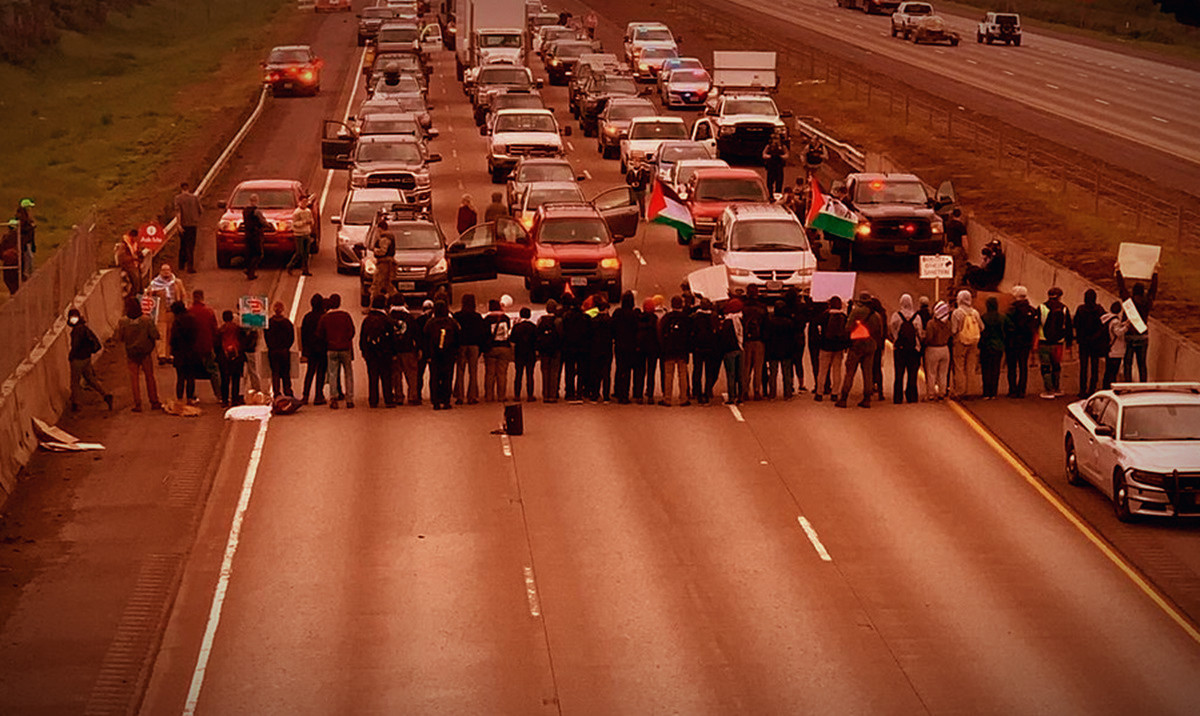Filed under: Analysis, Capitalism, Featured, The State, White Supremacy

CHARLIE’S IN HOT WATER
It’s been an embarrassing week for Turning Point USA.
Thanks to the investigative efforts of Ohio State University’s student publication, The Lantern, it was revealed that TPUSA has set aside thousands of dollars to influence elections for student body representatives. In a text exchange, TPUSA leadership director Kennedy Copeland stated “Liberals consistently dominate campus student government and our goal is to secretly take them out without them knowing what’s coming” — hardly the civil, nonpartisan exchange of ideas TPUSA claims to aspire for. Then, multiple campaign staffers, working to elect students Mary Honaker and Carla Gracia, were forced to resign after it was found their usage of TPUSA funds violated campus campaign-finance bylaws. Most shamefully, Devin M. Bilski, campaign manager for the “Brooks Brothers,” was forced to resign from TPUSA after being photographed wearing a homophobic, anti-socialist t-shirt. TPUSA apologized and explained the shirt was not one of theirs, but considering their position on hate speech, that’s largely immaterial.
Given the revelation that Charlie Kirk’s ur-fascist network is quietly influencing student body elections (even in violation of campus bylaws) while claiming to advocate meritocracy, civic responsibility, and open debate, now seems as good a time as any to lay bare the endless duplicities and hypocrisies of Turning Point, and Kirk himself.
In his book, Liberalism: A Counter-History, author Domenico Losurdo lays out the contradictory nature of classic liberalism and, by extension, the neoliberalism at the heart of TPUSA’s ideology. He describes the “aristocratic democracy” that develops from liberalist principles, wherein a small group of landed elite, blessed with true self-governance, gush over their love of liberty while working to rob the lower classes of their autonomy. And just like the liberal theorists lovingly quoted in TPUSA’s pamphlets — Locke, Burke, deTocqueville, and others — Charlie Kirk is a self-serving, dishonest fraud.
NOT “SMALL GOVERNMENT,” BUT CONSOLIDATED POLITICAL POWER
“Once we have committed the major violence of the conquest, I believe we must not shrink from the minor forms of violence absolutely required to consolidate it.” ~ Alexis deTocqueville, on the French colonization of Algeria
According to the Cato Institute, the odds of an American citizen being killed by a foreign-born terrorist was 1 in 3,609,709, from 1975 until 2015. Yet cases of verified, domestic, white supremacist terrorism are comparatively skyrocketing.
Nonetheless, President Trump deemphasizes domestic white supremacist terrorism, and focuses on the invisible enemy of the “Syrian radical.” He has proposed an increase of our military budget equal to 80% of the upkeep for Russia’s standing army. This, addition to a larger budget for a national security network which is not only fundamentally flawed, but geared to terrorize people within US borders; it murders its citizens, imprisons more of its own population than any other country, deports or detains millions based on pure suspicion, and routinely violates our basic human rights. This will be paid for in taxpayer dollars. Presumably, Charlie Kirk lauds the effort.
In comparison, SNAP — which costs roughly $70 billion — is called unnecessarily draining on the free market and individuals’ taxes, despite working out to roughly $1.40 per person, per meal. A pitiful sum, but a vital one for 47 million Americans, who cannot even afford food in this supposed promised land of low costs through competitive markets. This is the “wasteful big government spending” Charlie Kirk just can’t stomach.
Charlie Kirk does not want a “smaller government.” He merely thirsts for a government that works for HIM, and the interests of his GOP acquaintances. To increase border security, which already costs $12 billion, for a supposed ocean of Mexican immigrants, is ludicrous not merely because it combats an imaginary invasion (which reached its high water mark around 2012) based on racist fear-mongering, but because by the very same token, the whole system is totally unnecessary. If “fiscal responsibility” were the goal, TPU should be demanding that the DHS be scaled back dramatically to offset the taxpayer cost of SNAP. Why not decry the government for deporting millions of undocumented immigrants when, according to analysis through the Congressional Budget Office, the presence of those immigrants actually benefited the economy? Isn’t that an unnecessary shackle around the taxpayer’s ankles, the very accusation Kirk makes against SNAP which — let’s remember — tosses less than six quarters worth of lunch money into the hands of roughly one in six citizens, who desperately need even that insulting consolation prize?
Neoliberalism doesn’t fret over the expense of government, at least not when it suits interests like the prison-industrial complex, which is already planning to fill its coffers through privatized prisons in concert with ICE and the DHS. Primarily, the complaint against “big government” is directed at regulatory measures that interfere with profits, requiring such frivolities as the minimum requirements of edible food.
For that matter, what right does a man like Donald Trump have to complain about the draining effect of welfare, when he himself has cheated those SNAP recipients out of nearly two decades of taxation on a billionaire’s income?
NOT A “COMPETITIVE MARKET,” BUT GANGSTER CAPITALISM
When Trump needed pianos for the Taj Mahal casino, he contracted the work of J. Michael Diehl, a music store owner of 30 years. Despite being invoiced for $100k, Trump paid only $70k. Diehl attempted to sue Trump, but the professional conman’s lawyers threatened to bankrupt the defenseless Diehl through legal fees in a protracted court case. Faced with a no-win situation, Diehl surrendered and ate the loss in income. Donald Trump used his existing wealth to break the law, and subsequently increased his wealth, making it easier to repeat this behavior in the future.
It’s called “gangster capitalism,” and it’s the foundation of neoliberalism.
When Philip Morris threatened the island of Togo with a lawsuit over cigarette packaging — a case that PM knew they would lose if it went to court — Togo was forced to capitulate, because the whole nation would be bankrupted by the ensuing legal battle. Once again, gangster capitalism made the entire population of a less wealthy nation an offer they couldn’t refuse.
And so logically, how should gangster capitalists view the judicial and regulatory bodies that try to curb this behavior? They’re just the officials who need to be bribed, threatened, or whacked. When United Fruit wants cheaper bananas, they don’t ask politely; you either get down, or you lay down.
In what fashion does this represent a “competitive market?” Where is this paradise of opportunity, social mobility, and robust exchange of goods and services which, according to Charlie Kirk, should naturally ensure a freer and more developed society? J. Michael Diehl was mugged; he was threatened out of $30k, about the same as a year’s income for many American families. Yet the individual sovereignty that should be afforded to him, to every citizen, was denied because Trump was born one million dollars ahead. In the mobster town of capitalism, Trump was born with a six-shooter in his hand; the piano-maker had only his bare fists. Is this the “equal opportunity” that Charlie Kirk insists is the soul of his America? While he’s stomping his feet about the laboring class demanding an “equal outcome,” he ignores the ways in which capitalism denied us both the opportunity AND the outcome — and very early in our lives, at that.
Why does Charlie Kirk believe there was a property restriction on voting in this country until 1820? Because the indentured servants, homeless folk, exiled natives, brutalized slaves, and neglected freedmen and freedwomen simply had no interest in politics? Or is it because “no taxation without representation” applied only to the extant aristocracy of America, those whose wealthy families could afford them education, status, and a state-recognized political voice? They could leverage existing wealth and influence to prevent the unlanded from gaining suffrage in the first place, let alone changing the laws — no different for the voter suppression of today. Those who had no property to tax were seen as an untrustworthy, undeserving outsider element. This sentiment is echoed by John Adams in defense of the property restriction:
Is it not equally true, that men in general in every society, who are wholly destitute of property, are also too little acquainted with public affairs to form a right judgment, and too dependent upon other men to have a will of their own? If this is a fact, if you give to every man, who has no property, a vote, will you not make a fine encouraging provision for corruption by your fundamental law? Such is the frailty of the human heart, that very few men, who have no property, have any judgment of their own. They talk and vote as they are directed by some man of property, who has attached their minds to his interest…
NOT “INDIVIDUALISM,” BUT A CLASS OF LABORERS
“It seems to be a law of Nature that the poor should be to a certain degree improvident that there may always be some to fulfil the most servile, the most sordid, and the most ignoble offices in the community. The stock of human happiness is thereby much increased, whilst the more delicate are not only relieved from drudgery … but are left at liberty without interruption to pursue those callings which are suited to their various dispositions…” ~ Joseph Townsend, A Dissertation on the Poor Laws
Implicit in Adams’ warning against enfranchising the working class is the threat of a will-less population infiltrating the aristocracy, those of “right judgement” who understand the value of liberty. Of course, in a capitalist society, somebody has to play the part of the laborer, the lowest rung which exists to do the unfulfilling work required to keep the aristocrat in luxury. English colonizers had no shortage of potential candidates: when indentured servants were insufficient, colonists turned to native prisoners of war, then to the nightmare of racial chattel slavery, and then a kidnapping cartel in India and China. Now they’ve been replaced with prisoners, immigrants, low-wage workers, sweatshop laborers, and unpaid interns to name a few.
This is the segment of the population which Edmund Burke called the “swinish multitude,” those who have neither the genetic intelligence, nor the moral fortitude, to deserve full inclusion in the society which they fuel. They are a necessary cost of doing business, a commodity to be haggled over, and if possible, acquired free of charge. Just like the landless masses Adams suspected of being without judgement of their own, these laborers are excluded from the political realm which would, in a just society, be their vehicle for demanding better conditions and basic human dignity.
Where then, is this “individualism” that Charlie Kirk swoons over? Fundamentally, how can generations of people who have been specifically quarantined outside of the legal system be guaranteed their autonomy, when the landed, wealthy aristocracy controls access to this very mechanism? Neoliberalism has no concern with this apparent contradiction; first and foremost, the landed aristocrat must be free from “absolutist” powers of central government, and this includes being hampered in their business interests in any way. Ergo, the “liberty” of the 1% comes at the expense of autonomy of the 99% — the first must be kept safe from the demands of the second, and any legislative action that might upset this balance is considered illiberal and vulgar. It interferes with a man and his property.
Capitalism, and specifically neoliberalism, can invent this class of laborer from whole cloth if need be; without a juxtaposition with this pseudo-slave caste, the aristocracy cannot exist. To quote Dr. Michael Parenti, “wealth exists because of poverty, and poverty exists because of wealth.” The aristocracy, and their robust individual freedoms, come at the expense of the laborer’s self-determinism and forced dependence on corporate entities for work, food, medicine, and shelter.
NOT “SELF-GOVERNMENT,” BUT AN ARISTOCRACY
“… there is another sort of servant which by a peculiar name we call slaves, who being captives taken in a just war are, by the right of Nature, subjected to the absolute dominion and arbitrary power of their masters. These men having, as I say, forfeited their lives and, with it, their liberties, and lost their estates, and being in the state of slavery, not capable of any property, cannot in that state be considered as any part of civil society,the chief end whereof is the preservation of property.” ~ John Locke, Two Treatises of Government
TPUSA’s pamphlets lift up America as a symbol of liberty, exceptionalism, and more tellingly, inclusion. In the odiously-named TPUSA pamphlet, “10 Ways America is the Greatest Country in the History of the World,” America is praised as “… the most successful country in the world in integrating immigrants. The concept of the ‘melting pot’, virtually synonymous with the United States, is the ultimate manifestation of American power and patriotism.” Yet many citizens are excluded from Charlie Kirk’s “real America.” The following quotes are also found in that same pamphlet:
“… where atheism delivered the two most murderous regimes of the previous century — Nazi Germany and the Soviet Union — Christianity has permitted America to be the dynamic torch of liberty…” Non-Christians need not apply. For brevity, this glosses over the “Curse of Ham” being used to justify chattel slavery in the South.
“America doesn’t care about ethnic or religious origins, but it does expect immigrants to assimilate to mainstream society by surrendering their differences.” So any immigrant is disqualified, unless they are willing to be subservient.
“Political correctness weakens the health, and threatens the existence, of the American Dream. This is not simply because you can find yourself in hot water over something you may say, but because of the broader consequences it has on the cultural mindset.” Now, anybody who speaks out against bigoted language or laws is threatening the American Dream. This presumably includes Black Lives Matter, in Kirk’s view.
This whittling away of undesirables follows a long-standing tradition of classic liberals from Burke, to Calhoun, to Locke, to Jefferson; each declaring a love of unqualified, cosmic human sovereignty and liberty, then gradually justifying the exemption of the unworthy from that universal sentiment, until only a minority of “free” people remain to enjoy their privileged position.
This doublespeak allows for a plethora of blatantly hypocritical practices to be ignored, rationalized, or even proudly proclaimed. How else could Thomas Jefferson exalt the “inalienable rights of man,” while owning and abusing slaves; simultaneously lament their poor position in society, while plotting to forcibly deport them to Saint Domingue after their emancipation? How else could John Adams profess American self-governance, while strictly warning that “mechanics” and “common people” should be excluded from the writing of the laws which govern them? How could Burke celebrate resistance against absolutist monarchy, yet scoff at revolutionary France for seeking to elevate the political and social concerns of “tallow-chandlers,” “hair-dressers,” and “other more servile employments?”
THE LITTLE PRINCE CAN’T STAND SHARING
“… there is no right which, when the abolition of it is advantageous to society, should not be abolished.” ~ Jeremy Bentham
In addition to fostering good public relations for the Alt-Right, the membership of TPUSA is beginning a quiet, blushing romance with classic liberalism. They are emboldened by the exceptionalist rhetoric that places them, as pseudo-religious followers of a white, Christian, capitalist, in the sanctified cloister of the aristocratic class. They feel compelled to protect “their” liberty behind a great parapet of Western chauvinism, safe from the undeserving barbarians demanding a handout from the man. This is the unseemly core of the TPUSA platform. Despite his draconian rhetoric, Charlie Kirk doesn’t oppose the raw, theoretical concept of “liberty” itself — at least not when it is reserved for his fellow noblesse. What he dreads is tangible, material social mobility. To such an entitled, privileged individual, “equality” does not mean having every other citizen joyously elevated to a similar position of authority and autonomy, relative to him; it means being DEMOTED to the peasantry, having to sit with them, and watch them put their filthy hands all over his nice white tablecloth.
A lack of consequence, not an evenly-distributed recognition of human sovereignty, is what defines classic liberalist “freedom.” In such a society, the aristocrat gains not only their basic human rights, but enough generational economic dominance to secure additional privileges for themselves. To this class, having such excessive power stripped away feels like an injustice. For Kirk and his followers, being held accountable to the greater society upon which they depend is anathema.
photo: Gage Skidmore via Flikr (CC BY-SA 2.0)





